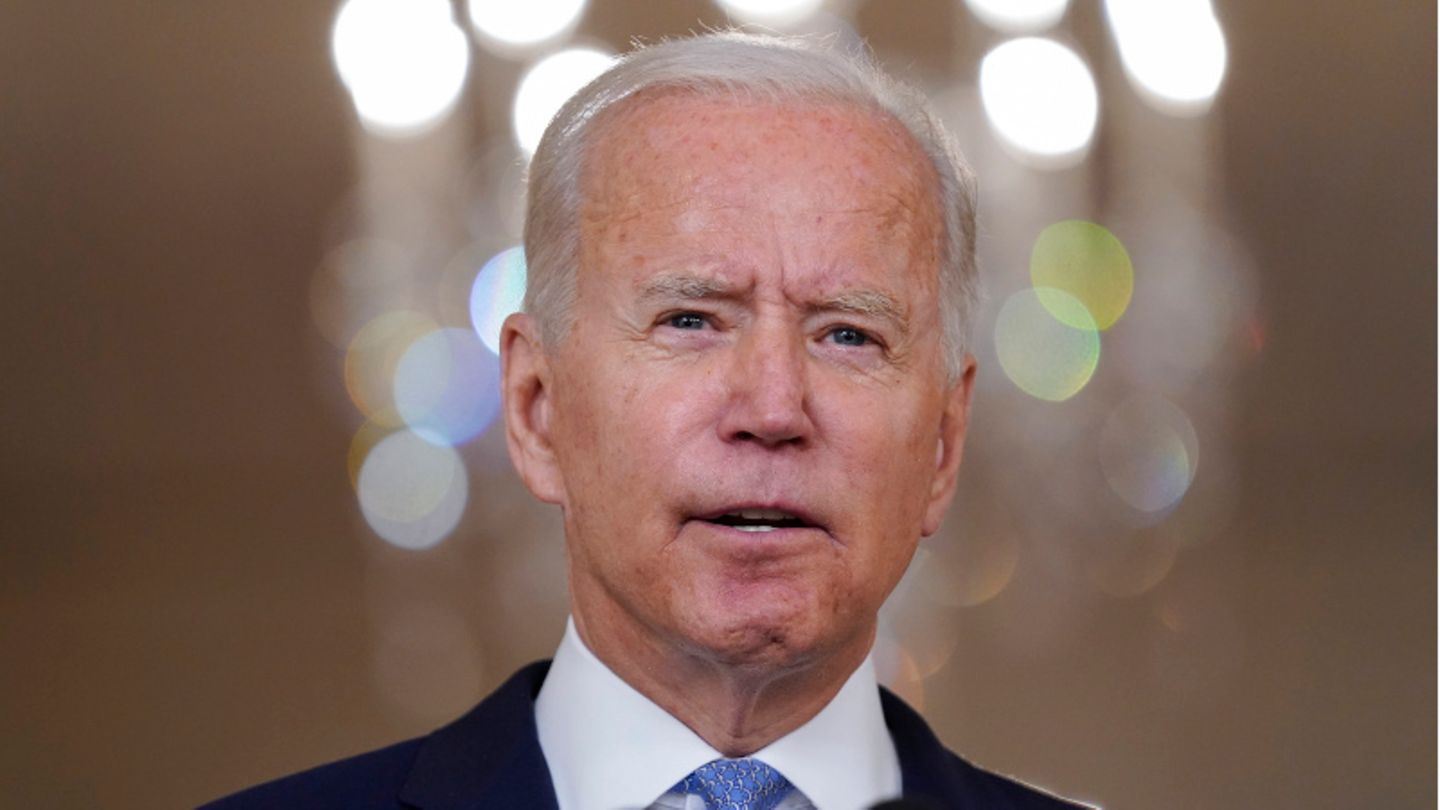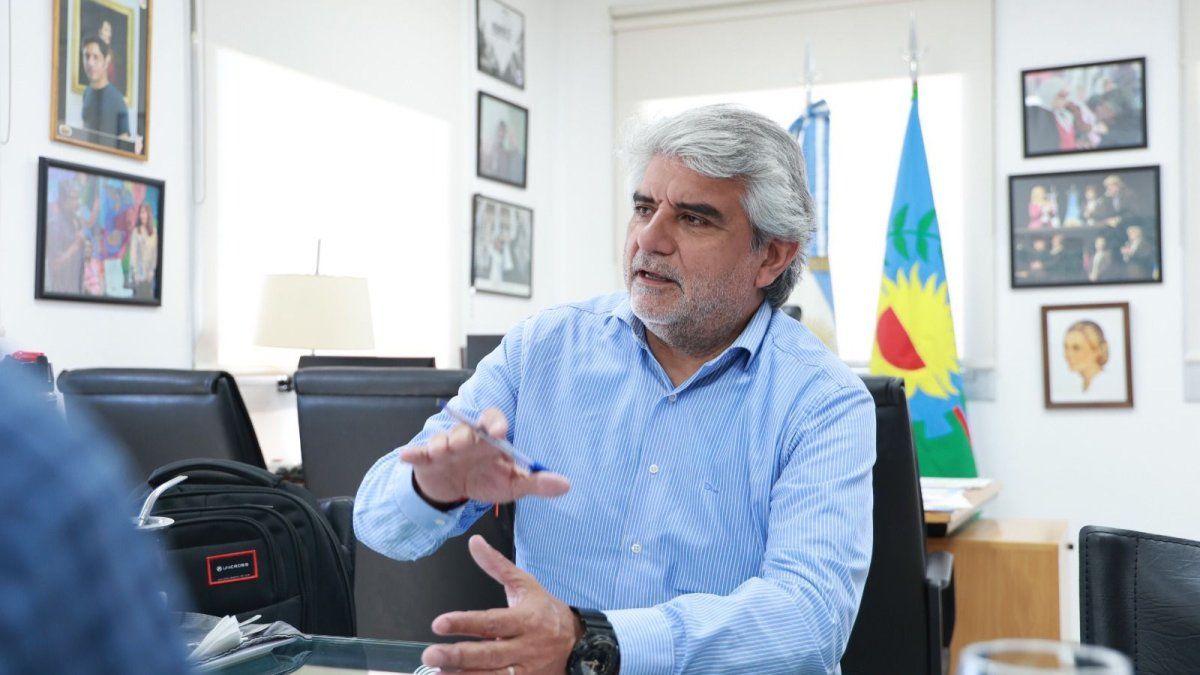The troops are gone, the longest war in US history is over – and Biden stands firm in his decision. Federal Foreign Minister Maas, meanwhile, ends his crisis trip. Now everything depends on the new rulers.
After the end of the international military operation in Afghanistan, US President Joe Biden vehemently defended his controversial decision to withdraw. “It was time to end this war,” Biden said at the White House on Tuesday. The alternative would have been to send tens of thousands more soldiers into the country and escalate the conflict, he argued. With the withdrawal of the last US soldiers from Kabul airport on Tuesday night, the international mission in Afghanistan came to an end after almost 20 years.
Now all eyes are on the renewed rule of the militant Islamist Taliban in the country. The presentation of the new leadership is expected shortly. Foreign Minister Heiko Maas (SPD) is on Wednesday for talks in Qatar – the Gulf emirate is one of the countries with the best contacts to the Taliban.
Joe Biden on IS: “We’re not done with you yet”
The last US military aircraft left the airport in the Afghan capital, Kabul, on Tuesday night. America’s longest war ended. Biden reiterated that his predecessor Donald Trump had signed an agreement with the Taliban and promised the withdrawal of US troops from Afghanistan. He himself had the choice of sticking to it or sending tens of thousands more US soldiers to war. Biden emphasized that he did not want to prolong the war forever – not even the withdrawal.
Biden announced consequences for future military operations. “We have to learn from our mistakes,” he said. “It’s about ending an era of great military operations to transform other countries.” Future assignments should have clear, achievable goals. They would also need to focus “on the basic national security interest” of the US.
The president also promised that the US would continue to take action against the local branch of the terrorist militia Islamic State (IS) after it withdrew from Afghanistan. He threatened the group that had claimed responsibility for the most recent devastating attack at the airport in Kabul: “We are not finished with you yet.” Dozens of Afghans and 13 US soldiers were killed in the attack shortly before the deployment.
Further departure depends on the favor of the Taliban
With the withdrawal of the last US soldiers, the military evacuation of US citizens, allies and vulnerable Afghans also ended. The USA and its partners had flown out western citizens and Afghan people in need of protection in a massive evacuation mission over the past two weeks. According to the US government, the US military alone brought around 79,000 civilians out of the country, including around 6,000 Americans. The United States and its allies have flown more than 123,000 people together.
But there are still tens of thousands of people in Afghanistan who want to flee the Taliban – most of them Afghans. Biden said there are probably 100 to 200 US citizens in Afghanistan who have “some intention of leaving.” Most of those who stayed behind are dual citizens and have long-term ties to Afghanistan. “We’re sticking to getting them out in case they want to get out,” said Biden.
The US government and other partners have promised that, even after the withdrawal of international troops, they will work to ensure that Afghans and Western citizens wishing to leave the country are allowed to leave the country unhindered. To do this, they depend on cooperation with the Taliban. These have at least promised to allow people to leave the country. How exactly this should happen is open. According to Foreign Minister Maas, there are also around 300 Germans in Afghanistan.
He didn’t want to speak to the Taliban himself – Maas ended the negotiation trip
The German chief diplomat ends his four-day trip to five countries that have to do with the Afghanistan crisis this Wednesday. Since Sunday Maas has been visiting Turkey and then Afghanistan’s neighbors Uzbekistan, Tajikistan and Pakistan. On Tuesday afternoon he left for his last stop in Qatar, from where he will travel back to Germany on Wednesday.
The Gulf emirate is one of the countries with the best contacts with the Taliban. The new rulers in Afghanistan also have their political office there, which functions as a kind of foreign ministry. Maas sent the diplomat and Afghanistan expert Markus Potzel to the Qatari capital Doha to hold talks with the Islamists. The Federal Government is counting on their willingness to cooperate in efforts to get more than 40,000 Afghans seeking protection out of the country. Before his visit to Qatar, Maas had made it clear that he would not speak to the Taliban himself.
Maas was optimistic about finding a solution for the Germans who remained in Afghanistan and for Afghan local staff. The Taliban had agreed to let them emigrate and they were dependent on international help, for example with the operation of the airport in Kabul, Maas said on Tuesday evening in the ZDF “Heute Journal”. According to him, however, the western states cannot be blackmailed: “We have also defined clear requirements. These are: compliance with human rights, the fact that people can continue to emigrate at all, and that no terrorist groups are given shelter in Afghanistan.”
UN Secretary General: “A humanitarian catastrophe is looming”
Meanwhile, UN Secretary General António Guterres warned of the total collapse of basic services in Afghanistan. “A humanitarian catastrophe is looming,” said Guterres in New York. “Almost half of Afghanistan’s population – 18 million people – depend on humanitarian aid to survive.” All member states are called upon to “stand up for the people in Afghanistan in their darkest hour of need”.
With the withdrawal of troops, the West is leaving the country back to those Islamists whom it had ousted through the US-led operation at the end of 2001. The Taliban had regained power in Afghanistan in mid-August after a military conquest that had accelerated rapidly after Biden’s announcement of withdrawal. So far, the Islamists have acted more moderately than during their rule from 1996 to 2001. However, many Afghans doubt whether they will stick to this line. There have been reports of human rights violations and attacks on journalists.
So far it is largely unclear how the Taliban intend to govern the crisis country. The Taliban leadership council discussed the formation of a new Islamic government as well as the current situation and security in the country at a meeting in the southern province of Kandahar. The meeting from Saturday to Monday was chaired by Taliban leader Haibatullah Achundsada, as spokesman Sabiullah Mujahid announced on Twitter on Tuesday. A new Islamic cabinet was also discussed. Achundsada then gave comprehensive instructions to the leadership council. The location of the meeting was not disclosed.
David William is a talented author who has made a name for himself in the world of writing. He is a professional author who writes on a wide range of topics, from general interest to opinion news. David is currently working as a writer at 24 hours worlds where he brings his unique perspective and in-depth research to his articles, making them both informative and engaging.




